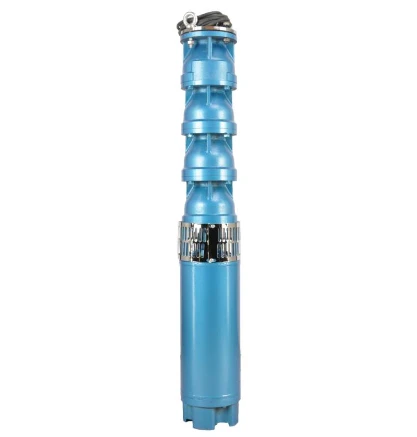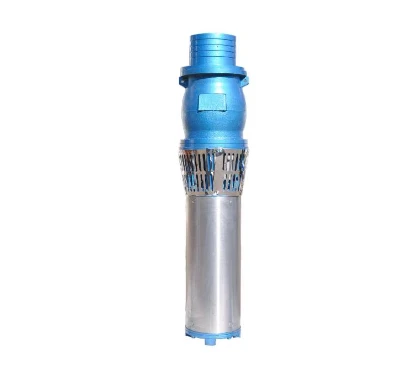Nov . 29, 2024 17:19 Back to list
Efficient Submersible Pumps for Deep Well Water Extraction and Supply Solutions
Submersible Deep Well Water Pumps A Comprehensive Overview
In our world where access to clean water is vital for life, submersible deep well water pumps play a crucial role in ensuring that communities, farms, and industries have a reliable water supply. These pumps are designed to operate underwater, making them particularly effective in deep well applications where water must be extracted from significant depths.
What is a Submersible Deep Well Water Pump?
A submersible deep well pump is a type of electric pump that is submerged in water to draw it up to the surface. Unlike traditional pumps that are located above ground and use suction to draw water, submersible pumps push water to the surface, making them more efficient for deep well applications. These pumps are constructed to be watertight, which protects the motor from water damage and allows for operation at greater depths.
How Do Submersible Pumps Work?
Submersible pumps consist of several key components, including the motor, impellers, and a discharge head. The motor is sealed within the pump to prevent any water from entering, and it is usually cooled by the surrounding water. As the pump is activated, the motor drives the impellers, which create pressure and push the water up through the discharge pipe to the surface.
The efficiency of submersible pumps is attributed to their design. By operating underwater, these pumps can handle high-pressure applications without the risk of cavitation, which occurs when vapor bubbles form in liquid and collapse, causing potential damage to the pump. Their vertical design also minimizes space requirements and reduces the risk of contamination, as they are often located directly within the aquifer.
Advantages of Submersible Deep Well Water Pumps
1. Efficiency Submersible pumps are generally more energy-efficient than surface pumps, particularly for deep well applications. Their design minimizes energy loss, allowing them to function effectively at greater depths.
2. Durability These pumps are built to withstand harsh conditions. The sealed construction protects them from corrosive substances and contaminants found in water, enhancing their longevity.
submersible deep well water pump

3. Lower Maintenance Once installed, submersible pumps require less maintenance compared to traditional pumps, as they are typically less exposed to environmental factors that can cause wear and tear.
4. Increased Water Availability Submersible pumps can access deeper water sources that are otherwise unreachable. This is essential in areas suffering from water shortages or during drought conditions.
Considerations When Choosing a Submersible Pump
When selecting a submersible deep well water pump, several factors must be considered
- Depth of the Well The pump must be able to reach the water level and provide adequate pressure for the intended use, whether it is for residential, agricultural, or industrial applications.
- Flow Rate The required flow rate will determine the size and capacity of the pump. It’s essential to choose a pump that can deliver the necessary volume of water based on daily consumption needs.
- Power Source Most submersible pumps operate on electricity, but it’s important to consider the availability of power sources, especially in remote areas.
- Materials Pumps made from corrosion-resistant materials, such as stainless steel or thermoplastic, will generally last longer in harsh water environments.
Conclusion
Submersible deep well water pumps are essential tools in modern water supply systems. Their efficiency, durability, and ability to deliver water from deep underground make them invaluable for various applications. Whether for residential water supply, agricultural irrigation, or industrial uses, understanding the features and benefits of these pumps can help users make informed decisions. As we continue to prioritize sustainable and reliable water sources, submersible pumps will remain a cornerstone of effective water management practices around the world.
-
Submersible Well Pumps Buying Guide
NewsMay.14,2025
-
Submersible Sump, Dirty Water, Borehole Pumps Demystified
NewsMay.14,2025
-
Stainless Steel Submersible Pumps Superior Performance
NewsMay.14,2025
-
High Flow Submersible Well Pumps Essential Features
NewsMay.14,2025
-
Choosing the Best Stainless Well Pump
NewsMay.14,2025
-
A Comparison of Submersible Pumps Filled with Water and Oil
NewsMay.14,2025
-
 Submersible Well Pumps Buying GuideReliable access to clean water is fundamental for residential, agricultural, and commercial operations, making the selection of an appropriate well pump system one of the most important infrastructure decisions.Detail
Submersible Well Pumps Buying GuideReliable access to clean water is fundamental for residential, agricultural, and commercial operations, making the selection of an appropriate well pump system one of the most important infrastructure decisions.Detail -
 Submersible Sump, Dirty Water, Borehole Pumps DemystifiedThe world of water management has undergone a technological revolution, with advanced pumping systems now offering unprecedented efficiency and reliability across diverse applications.Detail
Submersible Sump, Dirty Water, Borehole Pumps DemystifiedThe world of water management has undergone a technological revolution, with advanced pumping systems now offering unprecedented efficiency and reliability across diverse applications.Detail -
 Stainless Steel Submersible Pumps Superior PerformanceModern water extraction and fluid handling systems demand equipment capable of withstanding harsh environments while maintaining peak efficiency.Detail
Stainless Steel Submersible Pumps Superior PerformanceModern water extraction and fluid handling systems demand equipment capable of withstanding harsh environments while maintaining peak efficiency.Detail
